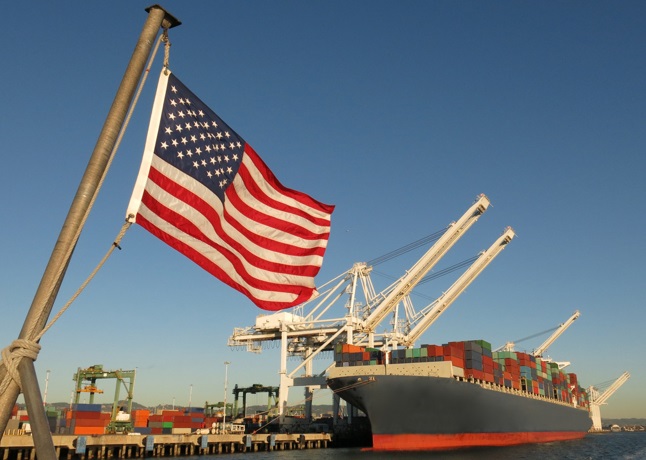 The United States holds the distinction of being a global leader in conservation and sustainable fisheries. Because our nation is one of the largest consumers and importers of seafood in the world, U.S. standards for imported seafood have a major impact on the sustainability of the world’s fisheries and the estimated $140 billion[1] in annual global seafood trade. In 2018, NOAA made significant progress in combating various challenges affecting our world’s fisheries, including fisheries resource sustainability, conservation of living marine resources, and ensuring that U.S fishermen and seafood producers compete globally on a level playing field for their products.
The United States holds the distinction of being a global leader in conservation and sustainable fisheries. Because our nation is one of the largest consumers and importers of seafood in the world, U.S. standards for imported seafood have a major impact on the sustainability of the world’s fisheries and the estimated $140 billion[1] in annual global seafood trade. In 2018, NOAA made significant progress in combating various challenges affecting our world’s fisheries, including fisheries resource sustainability, conservation of living marine resources, and ensuring that U.S fishermen and seafood producers compete globally on a level playing field for their products.
NOAA Fisheries, through the work of the Office of International Affairs and Seafood Inspection, leads our nation’s efforts in the international fisheries arena. Much of this work involves bilateral engagement, participation in regional fishery management organizations and commissions, overseas capacity building, and the administration of conservation-based trade regulations.
Combating Illegal, Unregulated, and Unreported Fishing
IUU fishing undermines international conservation and management, endangers global food security, and puts law-abiding fishermen and seafood producers at a competitive disadvantage.
Seafood Import Monitoring Program
In 2018, NOAA implemented the Seafood Import Monitoring Program to combat the threat of IUU fishing and seafood fraud. A key objective of SIMP is to eliminate the United States as a market for IUU-caught seafood. SIMP requires the data collection and reporting of the chain of custody information for 13 imported species vulnerable to IUU fishing—tracing them from their beginning overseas through their arrival in the United States. This helps prove that the seafood entering the U.S markets was legally harvested and produced and is what it claims to be.
IUU Fishing Report to U.S. Congress
In addition to preventing IUU-caught seafood from entering U.S. commerce, NOAA Fisheries identifies nations whose vessels have engaged, or are engaging, in IUU fishing. Every 2 years, NOAA Fisheries issues a report to Congress with its findings and analyses of foreign IUU fishing activities on the high seas. In 2019, we will release our next report identifying nations whose vessels engaged in these activities, and provide updates on our ongoing work with previously identified nations to address these issues.
Tackling Global Marine Mammal Bycatch
Bycatch is considered the most immediate threat to many populations and species of marine mammals worldwide. Global data on marine mammal bycatch has been generally lacking, particularly species-specific data. For these reasons, marine mammals have presented an array of issues and challenges for conservation and management.
In 2018, NOAA Fisheries published the List of Foreign Fisheries which, for the first time, offers a globally comprehensive catalogue of commercial fisheries and the marine mammal bycatch associated with them. The LOFF—which includes the evaluation of 3,296 foreign fisheries that export fish and fish products to the United States—offers an unprecedented review of 138 nations’ regulatory programs addressing marine mammal bycatch in commercial fishing operations. The LOFF is a key component in implementing the import provisions of the Marine Mammal Protection Act. Those provisions require that nations exporting fish and fish products to the United States meet comparable fishing standards for protecting marine mammals to those followed by U.S. fishermen.
Ensuring U.S. Competitiveness in the Global Seafood Trade
